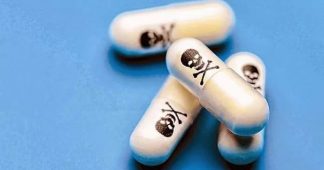The Metropolitan Community Clinic at Helliniko opened its doors in December of 2011. Since that time, it has become abundantly clear that the austerity measures resulting from the 1st memorandum, signed by the then Prime Minister George Papandreou brought catastrophe to Greek society. Since then we have denounced (and recorded) the effects of austerity on public health and knew that those results would be seen in health indicators. Seven years later and with the 3rd memorandum signed and obligations to the state that will carry on to 2060, a study from the respected British medical journal “The Lancet” shows exactly that. The study is entitled “The burden of disease in Greece, health loss, risk factors, and health financing, 2000–16: an analysis of the Global Burden of Disease Study 2016”
To sum up their findings:
- Increased mortality in the general population from 997.8 per 100,000 persons in 2010 to 1,174.9 in 2016 – an increase in mortality by 17.8%
- Cases of tuberculosis have increased amongst Greek citizens.
- Cases of HIV have almost doubled between 2010 – 2012 because the program of distributing free syringes to drug addicts was abandoned to save the cost.
- Increase in cases of severe depression and suicide
The study analyses the increase in deaths in the general population by age (Greece is indicated with blue color) and notes that the increase in deaths “coincided” with the reductions in spending in the public health sector from 2010 onwards.

Additionally there has been an increase in drug side effects, self-harm and many types of cancer found in all ages. New-borns and children less than 5 years of age die from illnesses that are treatable such as neonatal haemolytic disease and neonatal sepsis. There have been significant increases of cases of self-harm among adolescents and young adults. Increased mortality in people aged 15–49 years due to HIV, several treatable neoplasms, all types of cirrhosis, neurological disorders (e.g., multiple sclerosis, motor neuron disease), chronic kidney disease, and most types of cardiovascular disease except for ischemic heart disease and stroke.
To sum up:
- Newborns die due to treatable illnesses
- Teenagers and young adults have higher rates of suicide
- Teenagers and young adults are dying from illnesses related to bad nutrition, alcohol abuse, smoking as well as treatable illnesses
“Forzes” in an article on the Lancet study commented:
“The rise in deaths from self-harm among young adults is particularly striking. This is the human cost of Greece’s appallingly high youth unemployment rate. At the height of the crisis, in 2013, it was 58.21% – over half of all young adults. Even now, despite half a million young people leaving the country, it is over 40%. Greek young adults face a stark choice – leave, or face a lifetime of unemployment. It is hardly surprising that self-harm and suicide have increased.”
“But despite this epidemic of despair, the largest mortality increases are not among young adults, but among babies and the very elderly. This speaks to a crisis in healthcare.”
The Lancet study clearly states that from 2008 until 2014 spending on the Greek Public Health System shrank from 9.8% of the GDP in 2008 to 8.1% in 2014, and currently it is at 6%! And additionally, the GDP shrank more than 25% during the same period (which means that public expenditure is 4.5% compared with 9.8% in 2008!)
The Lancet study further states:
“Since the implementation of the austerity programme, Greece has reduced its ratio of health-care expenditure to GDP to one of the lowest within the EU, with 50% less public hospital funding in 2015 than in 2009. This reduction has left hospitals with a deficit in basic supplies, while consumers are challenged by transient drug shortages.”
All of the above is the best explanation of why Greek public hospitals have literally dissolved, with immense shortages in materials, medication and personnel. The only reason the hospitals have not utterly collapsed is the dedication of the doctors and nurses work full out to the point of exhaustion and beyond to cover personnel and supply deficiencies.
This evidence bears witness to the fact that austerity kills. And it kills based on policies implemented by all governments since 2010.
Who will answer from the Greek Ministry of Health and who will justify?
- The list of thousands waiting up to four months to start their cancer treatments while they literally melt away.
- For the inexcusable shortages of medications, requiring the public hospitals to search, beg and borrow in order to cover the needs of their patients.
And to find out the real access that uninsured patients have to the Greek public health service, we would as the Minister of Health:
- How much money has been spent on the hospitalization and diagnostic tests of uninsured patients?
- How many electronic prescriptions (prescriptions recognized in the health system and subsidized by the system) for CT scans, MRI’s, or scintigraphy were issued to uninsured patients and how many exams were finally conducted?
Published at http://www.mkiellinikou.org/en/2018/10/04/austerity-kills-these-are-the-results-austerity-kills-there-is-proof/











